Edgar, NE to Prairie Lake State Recreation Area, NE
47.3 miles/1,686 feet
90s/south 20mph
https://ridewithgps.com/trips/68789783
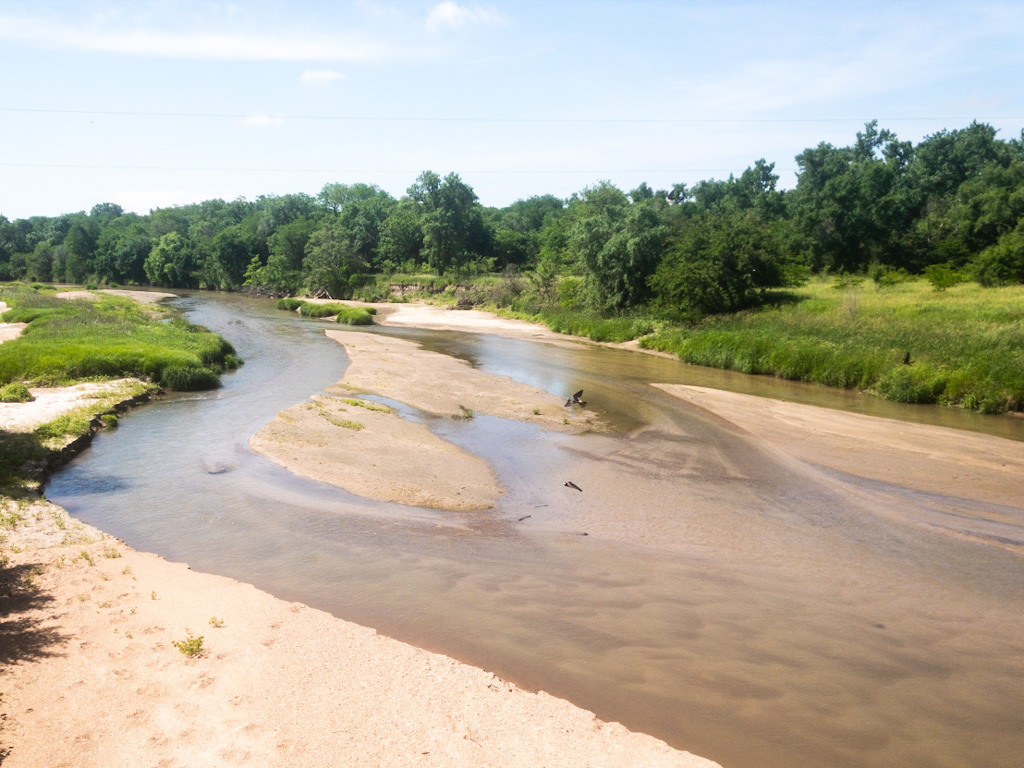
Morning in Edgar was as quiet as the night, if you take the trains into account. I was in that park from 3:30 pm or so until 8:30 the next morning and no one used it in that time, not even to let their dog poop on the grass.
I went back to the little market and bought a gallon of water to refill my various receptacles. They didn’t have a bakery section, so after waffling for a nanosecond, I bought a six-pack of pecan rolls for the road and wolfed down two while I filled up with water for the day.
Well, before that, I had another personal issue to deal with. Related to the peeing issue, only more solid, which isn’t to say concrete. As I was packing up to go, I had thought about throwing myself on the mercy of the City Hall staff to use their facilities. But knew I couldn’t count on that, and once I folded my tent, there went what little privacy I would have and what chance I would have to find intestinal relief for who knew how long.
Then I remembered an incident with Don (of the Bone in Her Teeth fame). We were anchored off a Club Med somewhere below Puerto Vallarta with a full crew and a full holding tank. Don’s solution was to use a plastic grocery bag and drop it in the Club Med trash. Worked well then, and it worked well this time (only it went into the Club Edgar trash, of course).
Bowels moved, water refilled, it was time to blow Dodge. Before I started, though, a guy in a pickup stopped to talk about my trip for a moment. He told me that Edgar was a railroad town, and that there was a string of similar towns all named by a now-defunct railroad, and the names ran alphabetically. Sure enough, if you look at a map, the string starts at Alexandria and runs through Bruning, Carlton, Davenport, Edgar, Fairfield, Glenvil, Hastings, Ingleside, Juniata, Kenesaw, and maybe a couple more. (As it turned out, the Pony Express Bikepacking route would take me through those last two the next day.) He said, There’s a little local history for you anyway, and let me go at that.
I had a six-mile crosswind run to get back to the Pony Express course. And—look, I’m sorry to keep harping on the bodily functions thing, and I promise this is the last tidbit for a while—Anyway, I had this jar of urine in the back of my trailer and it was going to be 90º again, and I had no idea when I was going to get to a place where I could deposit it. So somewhere on that run back to the Pony Express route, when I had a need to stop to pee—do all you non-cyclists understand that we (at least all the male cyclists I’ve ever known) will stop anywhere we can to pee off the side of the road? I mean, on group rides, if someone calls a break, every (male) rider I know will ditch his $4000 bike into the dirt like it was a Walmart knockoff and make a beeline for the nearest bush—as I was saying, I had to go and as as I was stopping the bike I thought about the bottle in my trailer, and to paraphrase Arlo Guthrie, I figured one big wet spot in the dirt was better than two little ones, and rather than pee into the bottle, I decided to add the pee in the bottle to the dirt. Which pretty much took care of the no-bathroom issues I’d had to deal with thanks to Edgar, NE for the rest of day.
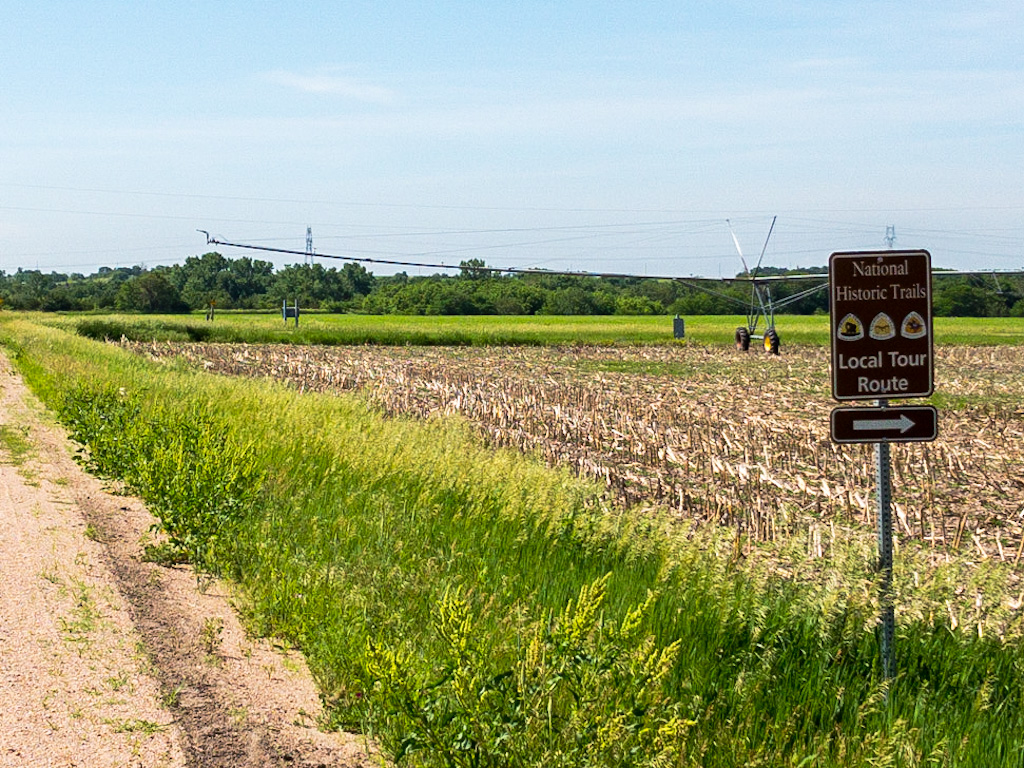
I’d been having issues with Ride With GPS, the app I used to navigate. It had been glitchy, crashing on me, failing to track, slow on getting a GPS signal, and just generally not running as smoothly as it had for the past year. As a result, I was delayed along the route screwing with it and took a couple of turns I wouldn’t have otherwise and lost some time and gained some unnecessary miles. In reality, I didn’t need it. The Pony Express Bikepacking Route follows the National Park Service’s Local Tour Route for the national trails through this section. I could have just followed the signs. But I didn’t know that at the time.
For the most part the wind was with me, but it was still hot. My energy flagged, but held, so I was okay.
At one point I saw a mom giving three kids a joy ride on a golf cart near a farm and asked permission to top off my water. I had two large bottles strapped to my forks specifically to carry extra water. But I had been leaving them dry, thinking I’d rather drink less and not have to carry the extra weight. In retrospect, that was a bad trade-off. I was fortunate to find people along the way to allow me to refill on these hot, windy days. Otherwise I would have put myself in bad shape.
Soon after I refilled, I came to a place where I had to cross a railroad track to get to an intersection just on the other side. A freight train was stopped there, blocking the intersection. Like Moses viewing the promised land from Mt. Nebo, I could see the intersection between the cars, so close, yet unobtainable. The train was long, and the track curved around a hill, so I couldn’t see the beginning or the end. I couldn’t hear the engine, so I had no idea why it was stopped or how long it would be. It was a mile back to the last crossroad, and there was just no way I was going to ride that on this already tough day. There was a ditch next to the track, so I dropped my bike and trailer into it and bounced it over the damp, uneven ground alongside the train for about a hundred yards to get to my next turn.
Since way back by Hollenberg Station I had been traveling in the Little Blue River Valley. Emigrants needed three things every day on the trail: a campsite, water, forage for the animals. The Little Blue River had all of these in abundance, so it was written up as their favorite part of the trail, the garden spot, you might say. Back near the Nebraska border, I mentioned this to Eunice’s cousin (the one who gave me permission to use her hydrant). I thought he might appreciate an outsider praising the area in which he lived. Instead, he sort of smiled and glanced away and all but said I don’t know as I’d describe it as that exactly.
Riding the Little Blue country these past few days, the valley divided up by farms and having to follow it by riding alternately north and west instead of northwest along the banks, I have to say it is not an awe-inspiring site. Nevertheless, it was nice being near it in light of the journal entries.
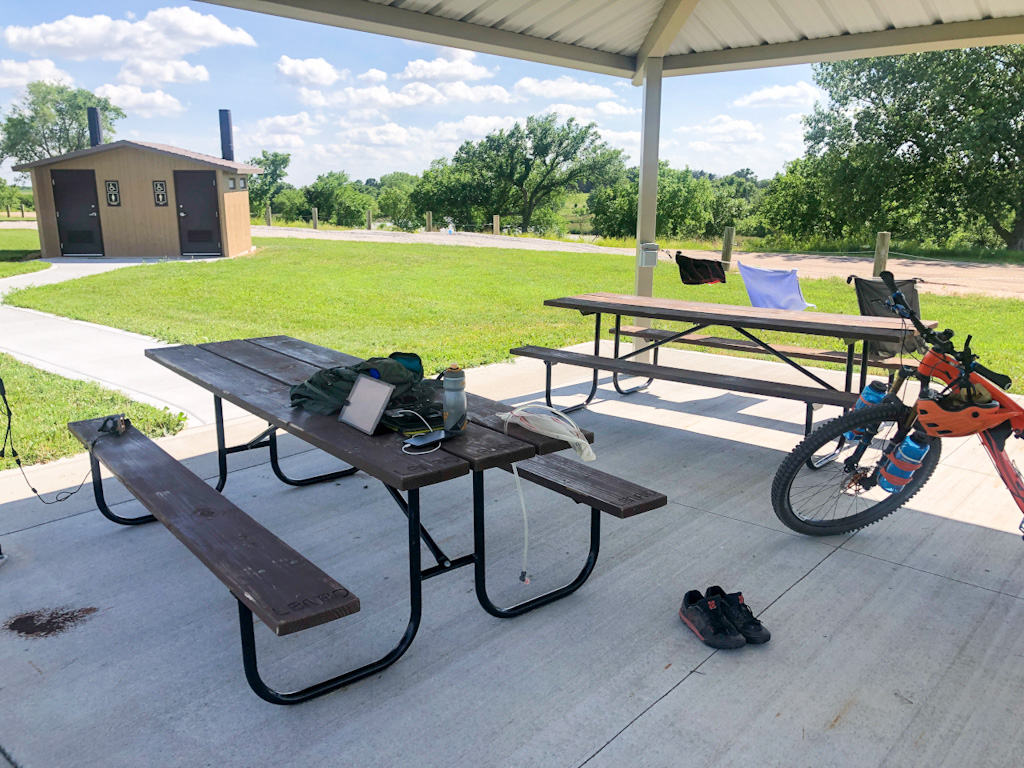
By the end of the day I made it to a campground at Prairie Lake Recreation Area. There were a couple of cars parked in the area, but no ranger station. I called the district that runs it and asked where to camp. The first person I spoke with said she came there so rarely and it had been so long that she forgot. She got someone else on the line and he first said, more or less, anywhere you want, and then tried to direct me to the “rustic” camping with an older pit toilet, no electricity, and presumably, dirt. He added that there were some nice old shade trees down there. At the time I was standing in a brand new “covered area” (that’s the term for an open structure with a roof overhead and tables underneath, maybe for thunderstorms?). It had a level concrete pad (have you ever noticed that picnic tables in campgrounds are always on uneven ground? Ever try using one?) water nearby (two hydrants), and electricity, as well as a new pit toilet building. It sat on a rise overlooking the lake and was surrounded by a level grass field. The state of Nebraska is getting ready to develop spots here for RVs, so hell yes, it was a lot nicer than the primitive tent area the ranger I was talking to was pushing. I told him, so long as no one cares, I think I’d like to just stay up top here. He said it was fine to camp anywhere other than under the covered area, to which I agreed; he failed, however, to say anything about commandeering the covered area, which I did as soon as he was off the phone.
I washed some laundry with the hydrant water and hung it out to dry on a clothes line strung between two pillars holding up the roof of the covered area. Started plugging in everything I could and laid out whatever I thought I’d need for later in the evening. There were no showers. Neither were there any people (One guy did walk by with a bottle of something I took to be alcohol, talking loudly to himself, and acting vaguely out of his mind. Before he got to the main road, a car came from somewhere down below—the tent area?—and picked him up). Once he was gone I stripped down to my underwear and gave myself a sponge bath of sorts using the cold hydrant water. The temperature was still in the upper-80s, the wind still well into the teens, so I was dry in minutes. I spent the rest of the afternoon sitting at a shaded, level picnic bench, wearing only a t-shirt and boxers, working on my blog until it was time to make dinner and set up the tent and go to bed. It was a long, lovely, peaceful afternoon.
Prairie Lake is about where the Pony Express, Oregon, and California Trails leave the Little Blue to cross over to the Platte. That means emigrants and freighters and Pony Express riders would just now be leaving the prairie for the Platte River Road and the Great Plains. The stretch from the Little Blue to the Platte is a section of trail all its own, and I’ll get to that tomorrow. For now, I’d like to leave you with a passage from Bernard De Voto about emigrants on the prairie. Admittedly, he sometimes speaks in code unless you’ve read his book or know the history of the trail. But I think the sense he’s trying to impart still comes through:
It was one of the great American experiences, this first stage of the trail in the prairie May. It formed the symbols we have inherited. The ladies knitted or sewed patchwork quilts. They extemporized bake ovens for bread, made spiced pickles of the “prairie peas” and experimented with probably edible roots, gathered wild strawberries to serve with fresh cream. They shook down into little cliques, with a chatter of sewing circles, missionary talk, and no charity for any nubile wench who might catch a son’s eye. Tamsen Donner wrote home – there was a pause for letter writing whenever someone moving eastward was encountered – that linsey proved the best wear for children. They put a strain on clothes – this was a fairy tale for children: the absorbing train, the more absorbing country, bluffs to scale, coyote pups to catch and tame, the fabulous prairie dogs, the rich, exciting strangeness of a new life with school dismissed. The sight of the twisting file of white-tops from any hill realized all the dreams of last winter along the Sangamon, and the night camp was a deeper gratification still. The wagons formed their clumsy circle, within reach of wood and water. Children whooped out to the creek or the nearest hill. The squealing oxen were watered in an oath-filled chaos, then herded out to graze. Tents went up outside the wagons and fires blazed beside them – the campfire that has ritual significance to Americans. The children crowded back to stand in the perfume of broiling meat. The most Methody of them were singing hymns – [Francis] Parkman walked into a search party who were settling the question of regeneration while they hunted their oxen. Glee clubs sang profaner songs, sometimes organized by the most meticulous choirmasters. An incurable Yankeeness extemporized debates, political forums, and lectures on the flora of the new country or the manifest destiny of the American nation. Oratory pulsed against the prairie sky. Be sure that nature was served also and the matrons who distrusted the unmarried girls had cause. This was the village on wheels, and the mind and habit of the village inclosed it, beside those carmine fires which Hollywood need only show us against white canvas to awaken our past. The fires lapsed, the oxen came grumping into the inclosure, and one fell asleep hearing the wolves in endless space. . . . This is what the grandfathers remembered when they told us stories.
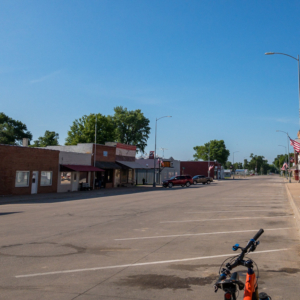
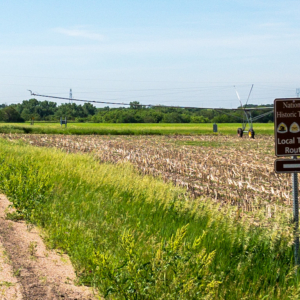
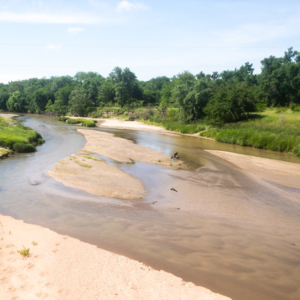
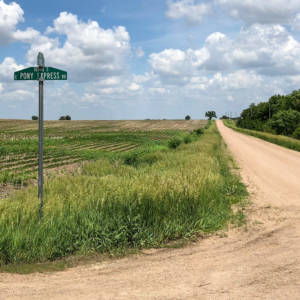
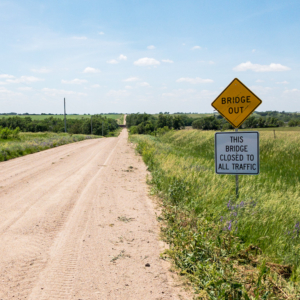

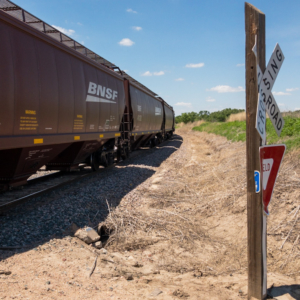
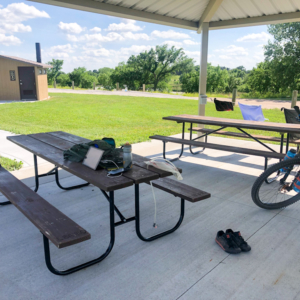
Love the passage you quoted!! The oxen grumping back killed me. I personally appreciate the more graphic explanations as I, too, have been in those situations on long rides and the ingenuity of fellow riders never ceases to amaze. Personally, I am proud to report that my life long record of never having peed outside (I’m a girl) was broken a few years ago with immense relief. I survived the occasion, as did my dignity, my shoes, and my fellow riders. Let’s hear it for getting the job done!
Congrats on surviving week 1!
The information about the bladder and bowels provides a lot of context to challenges you face on the road. However, feel free to omit those tidbits from future blog posts.
Hopefully, your next breakfast will not be made by Little Debbie and have an expiration date 5 years from now.
Sorry. I debated whether to add any of that. There should only be one more bit, about the “Backcountry Bidet,” which might appear somewhere out in Wyoming.
Congratulations on completing your first week on the trail! We’re proud of you, but we still think you’re nuts.
I was wondering about the bottle of pee . -brenda
I thought some might wonder. I probably should have mentioned that washed it when I camped too.
Well this sounds a better day.